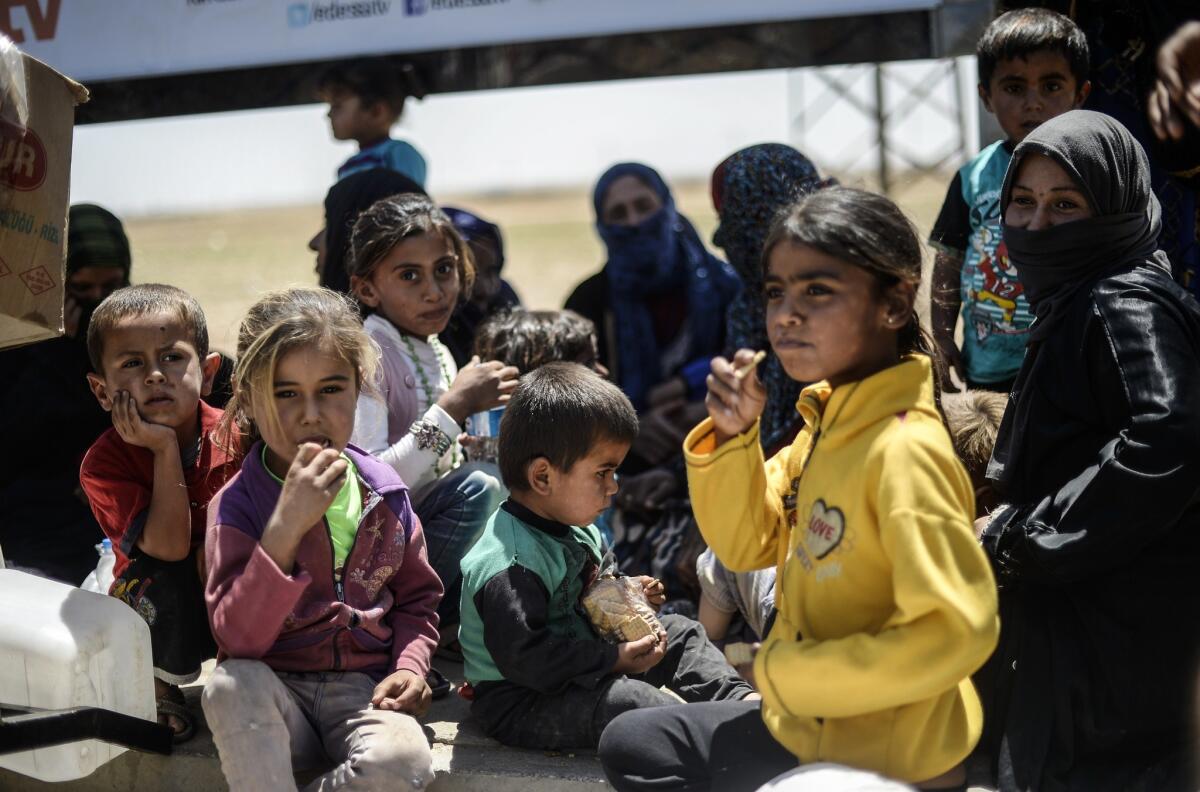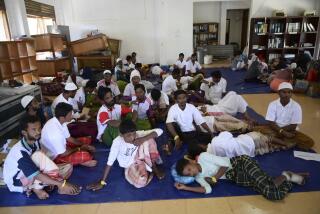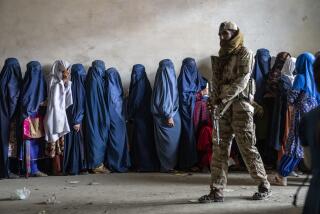Opinion: A world on the move, with violence as the engine

Syrian refugees sit on the side of a road that leads to the Akcakale border gate as they wait to return to their home in the northern Syrian town of Tel Abyad, in Sanliurfa province. About half of the world’s record 60 million displaced persons are children, the UNHCR said in a new report on the humanitarian crisis.
A year ago, the United Nations High Commissioner for Refugees announced a disturbing milestone had been reached. At the end of 2013, there were some 51 million refugees and internally displaced people in the world, the vast majority of them driven from their homes by war. It was the highest number of such displaced persons since World War II.
Now the UNHCR says the total is nearly 60 million - about equal to the entire populations of California, Oregon, Washington, Nevada and Arizona. Or, as the UNHCR put it, enough people to compose the 24th largest nation on earth, slipping in between Italy (61.7 million) and Burma (55.7 million).
And it is a tide of children -- just over half of the displaced are under age 18, the highest proportion in more than a decade.
By any measure, this is a horrific situation, propelled by seemingly intractable problems. The Middle East is in flames (Syria is the biggest driver of the displaced) and it seems likely the region will become even more destabilized before the dust settles. Sub-Saharan Africa has been in upheaval for so long that conflict seems like the status quo. In fact, worldwide the UNHCR counts 15 wars or militarized clashes over the past five years, some new, others reignitions of old disputes. That has displaced an incredible 42,500 people each day, a fourfold increase over four years ago, the UNHCR said.
“We are witnessing a paradigm change, an unchecked slide into an era in which the scale of global forced displacement as well as the response required is now clearly dwarfing anything seen before,” António Guterres, the high commissioner for refugees, said in releasing the report earlier today. “It is terrifying that on the one hand there is more and more impunity for those starting conflicts, and on the other there is seeming utter inability of the international community to work together to stop wars and build and preserve peace.”
Or, for that matter, to find ways to accommodate the refugees. I wrote a year ago about the abject failure of the world’s leading nations to achieve peace, and mediate disputes, both real and contrived:
“This is a world on the move. It is entirely reasonable for a nation to determine who gets to live within its borders, but that sovereignty gets sorely tested when a human tide wells, whether it’s propelled by violence or crushing poverty. In fact, the violence might be easier to resolve, with stronger, coordinated regional responses to separatist movements and ethnic or religious frictions.
“What’s clear is the world needs to do more to deal humanely with those fleeing inhumane acts and violence, and to blunt the violence before it reaches crisis proportions. Military responses might squelch uprisings, but peace established at the barrel of gun is an uneasy peace, at best. From the ethno-centric clashes that followed the collapse of Yugoslavia to what’s unfolding now in post-Saddam Hussein Iraq, we can see what happens when political issues fester.”
Sadly, the same words apply today. And the crisis carries even more urgency. As the UNHCR warned, the crisis will worsen as the wars rage on. In fact, Guterres says, the pace of displacements is increasing.
Follow Scott Martelle on Twitter @smartelle.
More to Read
A cure for the common opinion
Get thought-provoking perspectives with our weekly newsletter.
You may occasionally receive promotional content from the Los Angeles Times.







